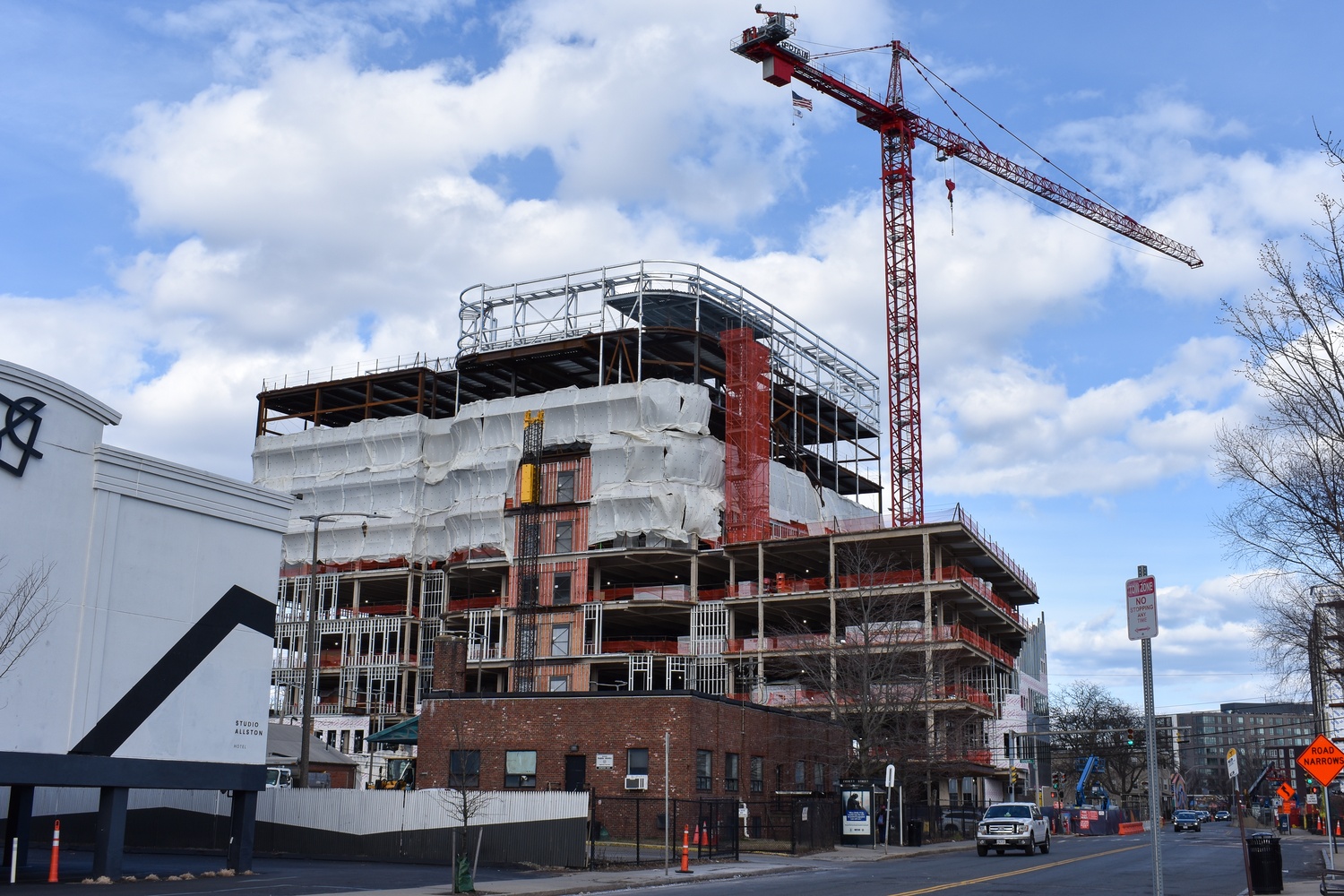
News
Summers Will Not Finish Semester of Teaching as Harvard Investigates Epstein Ties

News
Harvard College Students Report Favoring Divestment from Israel in HUA Survey

News
‘He Should Resign’: Harvard Undergrads Take Hard Line Against Summers Over Epstein Scandal

News
Harvard To Launch New Investigation Into Epstein’s Ties to Summers, Other University Affiliates

News
Harvard Students To Vote on Divestment From Israel in Inaugural HUA Election Survey
Allston Residents, Elected Officials Ask for More Benefits from Harvard’s 10-Year Plan

As Harvard finalizes its Institutional Master Plan in Allston, residents and elected officials called on the University to fulfill previous promises and increase contributions to the Boston neighborhood.
The IMP—which sets terms for the University’s plans to develop its campus in Allston over the next ten years — has drawn attention from residents on the Harvard Allston Task Force, as well as Boston City Councilor Elizabeth “Liz” A. Breadon and Massachusetts State Representatives Michael J. Moran and Kevin G. Honan.
The task force and elected officials sent separate letters to the Boston Planning and Development Authority — which will hold a public hearing to consider Harvard’s IMP next month — encouraging Harvard to increase affiliate housing in the neighborhood and support public services.
The IMP has faced criticism from Allston residents since it was first presented last January. The plan was formally filed in November and includes six new construction projects — three of which were proposed in the 2013 IMP— spanning nearly 720,000 square feet of construction.
In a letter addressed to Boston mayor Michelle Wu ’07 and BPDA officials, the task force criticized delays in Harvard’s execution of development plans laid out by its last IMP — effective from 2013 to 2025. The task force also made a series of requests for Harvard to help combat the lack of housing in the neighborhood.
Task force members specifically asked for Harvard to donate land that it owns in Allston to be used for affordable housing.
“Land is the critical element currently missing in our community for creating more affordable housing,” residents wrote. “With nearly one-third of Allston’s land under its control, much of it underutilized — Harvard’s holdings present a critical opportunity to drive economic development, provide essential resources, and uplift the community.”
The letter also called on Harvard to contribute funding to Allston-Brighton Affordable Housing Fund and the Jackson Mann Community Center Revitalization Fund. Harvard has previously donated to the ABHF, but the letter states that the Revitalization Fund remains $75 million short of its funding goals.
Jackson Mann functions as the neighborhood’s only city-run community center, providing adult education classes, after school programming, and childcare. But since a 2019 report found that the building did not qualify for renovations due to poor conditions, Jackson Mann has scaled back several of its programs — mobilizing residents to demand a timeline for repairs.
The task force also requested that Harvard fund improvements for public parks, public schools, and the Harvard Allston Partnership Fund — a fund for nonprofits — in Allston.
The letter, which was also distributed to various Boston City Councilors and state representatives, was sent in late January. Two weeks later, Breadon, Moran, and Honan responded with their own letter to the BPDA which largely echoed the task force’s requests.
The letter included demands for increased funding for the community center and the ABHF. Elected officials also called on Harvard to construct residential housing for University affiliates, noting that the IMP’s development plans do not include such units.
But the officials did not amplify the task force’s request that Harvard contribute additional land to build affordable housing in the neighborhood.
The elected officials also called on Harvard to expand programming and outreach at the Harvard Ed Portal, a community benefit negotiated in the last IMP meant to offer educational programming to local residents.
“Harvard University is a world-renowned academic institution. Harvard owns and utilizes ~184 acres of land in Allston for institutional purposes,” the elected officials wrote. “As such, we believe that education-related measures must be a critical component of this IMP’s mitigation and community benefits package.”
“Harvard is reviewing and evaluating the feedback, comments, and requests that were submitted during the IMP comment period,” Harvard spokesperson Amy Kamosa wrote in a statement. “As the regulatory process continues, the University looks forward to continuing these ongoing conversations with City Officials, local elected officials, and community members.”
The city has scheduled a public meeting via Zoom on March 3 to discuss the latest iteration of the IMP, including time for public comment.
Barring additional delays, the board of the BPDA will vote on the final IMP on March 13.
—Staff writer Angelina J. Parker can be reached at angelina.parker@thecrimson.com. Follow her on X @angelinajparker.
—Staff writer Emily T. Schwartz can be reached at emily.schwartz@thecrimson.com. Follow her on X @EmilySchwartz37.
Want to keep up with breaking news? Subscribe to our email newsletter.
